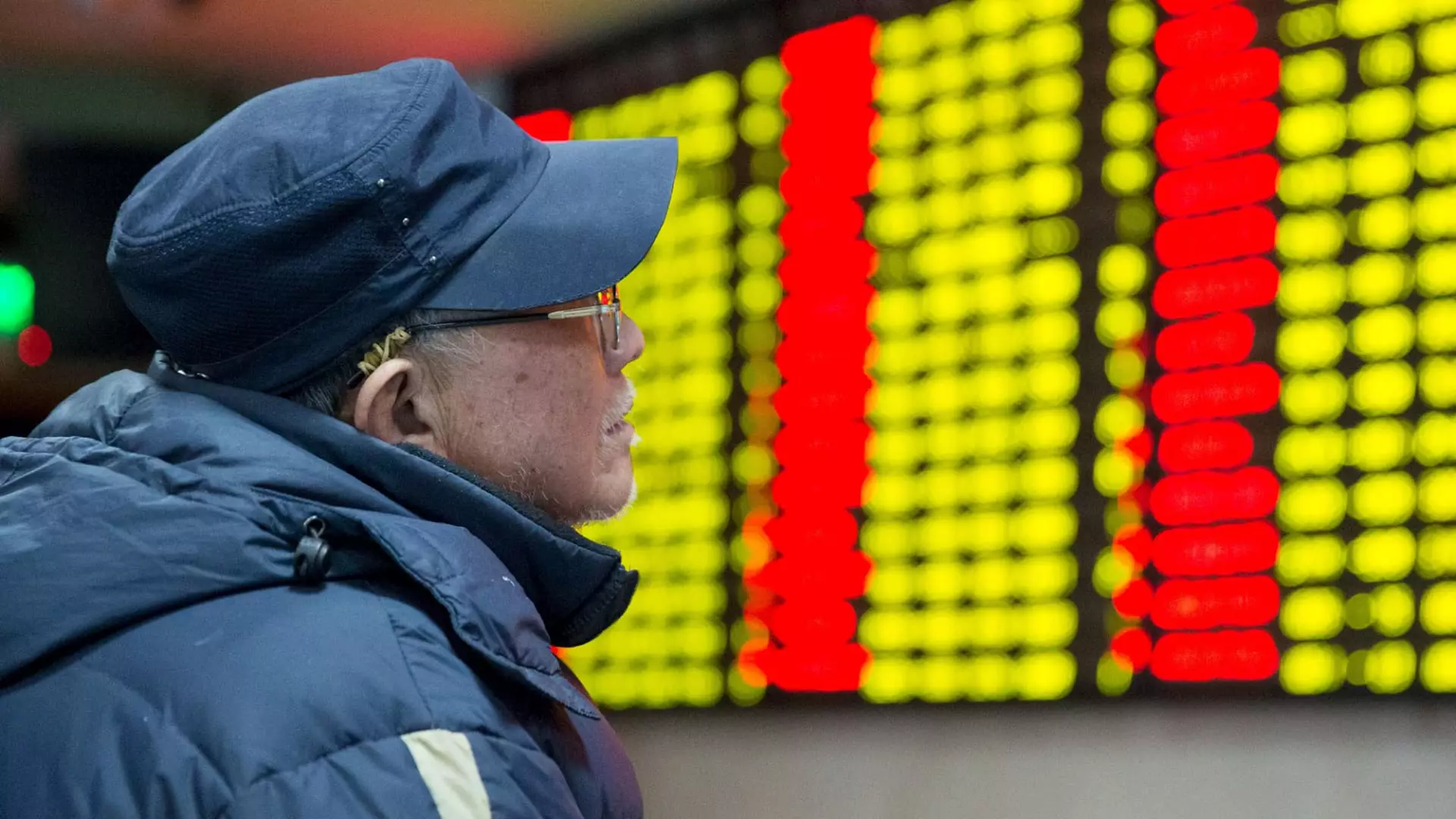China’s stock market has recently demonstrated a remarkable resilience, transitioning from a troubling downturn to a significant rally. This unprecedented turn of events followed the government’s introduction of several economic stimulus measures aimed at invigorating both investor confidence and the broader economy. The CSI 300 index, which includes a diverse range of stocks from Shanghai and Shenzhen, saw a dramatic surge of over 15% in just one week—the index’s most substantial weekly gain since the global financial crisis in 2008. Earlier this year, investor sentiment had hit rock bottom, with the CSI 300 plummeting to its lowest level in six years. This stark contrast is a clear indication of how swiftly market dynamics can change based on governmental policy adjustments.
In the wake of this bullish market behavior, financial analysts and strategists are urging caution and selectivity in investment choices. A report by Wendy Liu, JPMorgan’s chief equity strategist in China, emphasizes the importance of investing in quality companies that exhibit strong fundamentals and favorable valuations, as they are likely to outperform the broader market in the long term. The report highlights three key stock selections: Tsingtao, a leading beer manufacturer, the popular U.S.-listed retailer Miniso, and Zhejiang Dingli, a machinery company listed on the Shanghai Stock Exchange. These recommendations reflect a broader trend among investment experts who are keen to identify undervalued stocks poised for recovery, despite the uncertainty surrounding the government’s efforts to stabilize the economy.
Investor enthusiasm for Chinese equities appears to be contagious, as many market players are recognizing the renewed opportunities this shift presents. Rupal Agarwal from Bernstein has articulated a bullish stance, remarking that now is an opportune moment to enhance exposure to the Chinese market. However, she also advises that investors should remain vigilant, seeking definitive signs of improvement in consumer sentiment and corporate earnings before committing to a more pronounced bullish outlook. This indicates a cautious optimism, wherein analysts balance enthusiasm for potential gains with an awareness of the underlying economic challenges that still loom.
The global investment landscape is not devoid of complexities, as noted by hedge fund titan David Tepper during a recent appearance on CNBC. Tepper’s embrace of Chinese equities comes in stark contrast with potential concerns regarding U.S.-China trade tensions and looming tariffs on Chinese products, which could reshape the market environment. Despite these apprehensions, Tepper contends that China’s newfound emphasis on internal stimuli, combined with attractive price-to-earnings ratios relative to U.S. stocks, positions Chinese companies favorably. This perspective underscores an important theme among investors: the potential for Chinese stocks to deliver value, even amidst geopolitical uncertainties.
Recent comments from Governor Pan Gongsheng of the People’s Bank of China (PBOC) on rate cuts have intensified market optimism, alongside a high-level meeting led by President Xi Jinping to affirm supportive fiscal and monetary measures. The aftermath of these announcements has been notable, as short-term traders have increasingly shifted towards purchasing Chinese equities over recent weeks. Goldman’s Scott Rubner has highlighted a resurgence in interest in the Chinese market, particularly as global mutual funds and hedge funds begin reallocating their investments after a prolonged period of caution.
Despite the recent resurgence in Chinese equities, the path forward is not without significant obstacles. Concerns remain regarding the real estate sector’s recovery, mounting debt levels, and overall economic stagnation. Additionally, many international investors are still on the sidelines, hindered by fears of escalating U.S.-China tensions. The market’s recovery will also depend on how efficiently the government can implement its economic strategies and whether these measures can translate into sustained growth. Analysts are hesitant to predict a broad-based rally until there are clear signs of stability and momentum.
As China’s stock market navigates its current phase of resurgence, it draws attention to the pivotal role that governmental policies play in shaping market sentiment. Investment strategies will likely prioritize quality, value-based stock selection, even as broader economic uncertainties persist. Ultimately, while the recent rally offers promising opportunities for investors, careful observation of the market conditions, governmental policies, and global economic factors will remain critical in determining the sustainability of this optimistic outlook. The coming months will be instrumental for investors who are keen to take advantage of emerging trends in China’s evolving economic landscape.

